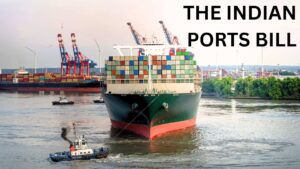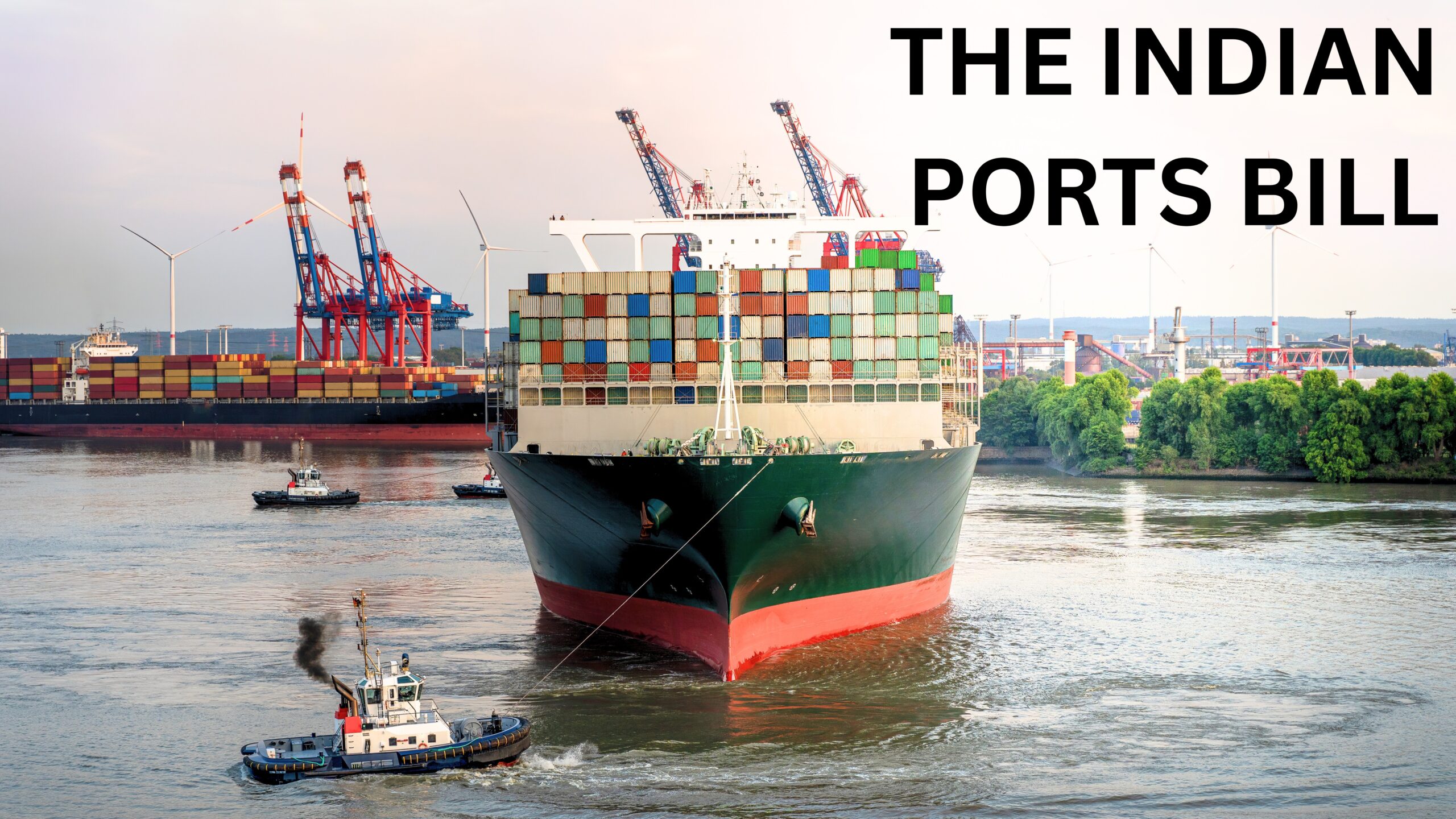
The Indian Port Bill 2025 was passed in the Lok Sabha on 12th August 2025 and subsequently cleared in the Rajya Sabha on 18th August 2025 during the monsoon session. The bill seeks to replace the Indian Ports Act, 1908, to regulate port operations and management, levy fees and tariffs and provide for environmental safeguards. What seems to be a policy reform in intent, at the depth reflects overhauls that favour private players and measures that empower and fuel central government control in minor ports of the country.
One of the defining features of the Bill is the creation of the Maritime State Development Council (MSDC), a statutory body proposed for facilitating coordination between the Centre and coastal States/UTs on matters of port development and maritime infrastructure. The council will be established by the Central Government, chaired by the Union Minister for Ports, Shipping and Waterways and included as ex-officio members the Ministers in charge of ports from each coastal State, the Minister of Puducherry, administrators of coastal Union Territories, Secretaries from the Defence Ministry (Indian Navy and Coast Guard), and the Secretary of the Ministry of Ports, Shipping and Waterways as Member Secretary.
As per Clause 6(1)(a)(i) & (ii) of the bill, the Council will recommend the legal and policy reforms in the port sector, while Clause 6 (1)(a) (iii) and 6(1)(b)(i) empower the council to advise on national planning and port connectivity. In addition to this, Clause 6(1)(b)(ii) enables it to issue guidelines on data sharing and tariff transparency. Importantly, the council’s staffing, funding, and procedures will be entirely governed by the Central Government (Clause 7(1), 7(2)).
The need for introduction, composition imbalance and function of the Maritime State Development Council bring forth serious questions about federalism and jurisdiction. The constitution places minor ports in the state list, and many coastal states like Gujarat, Maharashtra, Tamil Nadu already have well-established maritime boards that oversee development, set tariffs and issue licences. The MSDC’s power to set transparency standards, demand data, and issue tariff-related guidelines risks overlapping roles and further reinforces the overriding nature of the regulator over state commissions and existing institutional frameworks.
For instance, the council’s authority to collect data from “any person”, including private concessionaires and sub-lessees, can potentially extend the Centre’s reach into the regular functioning of minor ports, given the huge composition imbalance of the council, creating both heavy compliance burdens and centralised control. Similarly, tariff guidelines for minor ports diminish the boundary between advice and regulation, effectively allowing the centre to shape pricing policies that the State currently controls. Such a shift comes at the cost of a federal structure of governance where states have been constitutionally entrusted with the authority over minor ports to manage local development and alignment of regional needs.
The other important aspect of the bill, which indicates the silent push towards corporatisation, is the provision of concessionaires. The bill defines concessionaire as any person who has been granted any right, licence, permit or authorisation, by whatever name called, by the Government or the Authority, including by way of a concession agreement, for conducting all or any activity within a port. This overly broad definition creates a lacuna, enabling various actors to capitalise on the ambiguity between strategic and commercial functions. The bill does not clarify the criteria or process by which concessionaires will be selected or authorised. This leaves scope for preferential allotments. Clause 47 of the bill states that the port tariff for every port other than a major port (i.e. minor port) shall be fixed by the respective State Maritime Boards or such concessionaire as may be authorised by the concerned State Maritime Board. Tariff fixation is a regulatory function, but the following clause empowers even the concessionaire to influence it. These concessionaires can be big corporations and financiers which can dominate ports through monopolistic pricing and control.
Ports and fishing harbours are important sources of livelihood for local communities. In Tamil Nadu alone, there are 9.23 lakh fisherfolk population and 608 fishing villages. People from these communities rely on the local governance structure. Following the reforms, however, the local interests of these communities are at risk of being undermined by an overemphasis on national interest, such as trade expansion and global connectivity. This can channel investment into large-scale infrastructure projects, often at the cost of displacement, ecological and indigenous livelihood destruction.
We are heading towards a neo liberal regime, where changes in acts and policies strengthen private sector dominance by surrendering to market forces, while ignoring the deep structural inequalities that exist in the country. Reforms like such add to the scope of entry of big corporations, which lack financial and social accountability to the public.
Diya is a student pursuing a Bachelor’s degree in commerce and research, Marjorie Fernandes Intern
Centre for Financial Accountability is now on Telegram and WhatsApp. Click here to join our Telegram channel and click here to join our WhatsApp channel, and stay tuned to the latest updates and insights on the economy and finance.

